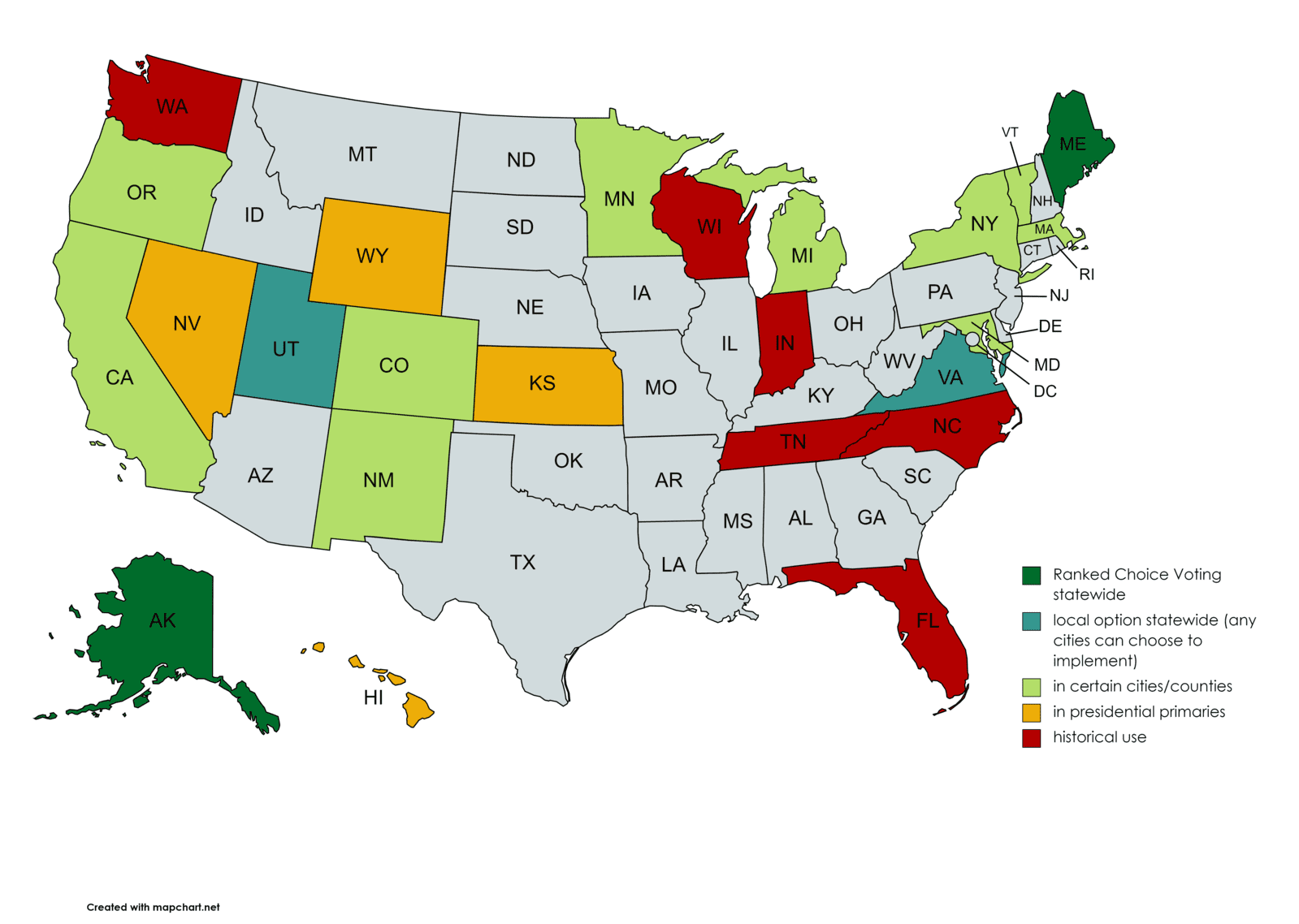Legislation to ban ranked-choice voting, a method that has been criticized as counterintuitive and confusing, was approved this week by the Texas Senate.
Senate Bill 921 by State Sen. Bryan Hughes (R–Mineola) passed the state’s upper chamber by a vote of 21-9, receiving the approval of all 19 Republicans and Democrats César Blanco (El Paso) and Juan “Chuy” Hinojosa (McAllen).
Ranked-choice voting, also called preferential voting, allows voters to rank candidates for an elected office in order of preference, eliminating the need for a runoff election in the event no one receives a majority. The votes are then reallocated among the remaining candidates after the least popular candidate is removed from the count. Oftentimes, elections administered through ranked-choice voting require multiple rounds of vote tallying before a candidate is determined to have received a majority. This process can take several weeks to complete.
Advocates for ranked-choice voting claim it increases voter participation, costs less, and provides more immediate results compared to the traditional method of selecting one choice for each race by eliminating the need for runoff elections. They also contend that it facilitates the election of “consensus” candidates who appeal to a wide range of voters instead of small but vocal contingents on the political extremes.
Opponents, however, say it actually suppresses participation and disenfranchises voters through “ballot exhaustion,” which refers to ballots being thrown out when a voter fails to rank all candidates and his first choice is eliminated. They also argue it is inherently confusing, reduces trust in the electoral process, and allows candidates who are not supported by a majority of voters to win elections.
While most elected offices in Texas require only a plurality of votes to determine a winner, some elections require a majority. For those elections, previous opinions issued by the Texas secretary of state and Texas attorney general state that Texas law currently prohibits the use of ranked-choice voting to determine a majority.
Hughes said his bill is intended to codify these opinions in state law, explaining that it is “a very confusing election system” that is “picking up steam in a couple parts of the country” but would “be really bad anywhere in Texas.”
He noted that ranked-choice voting has been implemented in 64 jurisdictions in the United States—including the states of Maine and Alaska and cities such as San Francisco, Portland, and New York City—affecting 13 million voters.
He pointed out how an error in the calculation of votes for California’s Alameda County school board election in November 2022 led to the certification of the wrong candidates, and he described how the 2021 mayoral election for New York City required eight rounds of vote tabulation through two weeks and resulted in around 140,000 ballots being discarded.
Hughes did not address Alaska’s adoption of ranked-choice voting in 2020 or the results of its first elections held under the new system last year. Those elections drew the ire of conservatives in the state and across the country for facilitating the re-election of moderate Republican U.S. Sen. Lisa Murkowski and the election of Democrat Mary Peltola for Alaska’s lone congressional seat, which had been held by a Republican for 50 years.
Chase Martin of the Opportunity Solutions Project did, however.
When the bill was heard in committee, Martin pointed out that around 11,000 ballots were discarded in Alaska’s August 2022 congressional special election, in which nearly 60 percent of voters selected a Republican as their first choice but Peltola won by about 5,200 votes.
Martin said ranked-choice voting is “a disastrous and alternative voting system that discounts votes, diminishes confidence, and threatens fast and accurate ballot counting.”
Interestingly, turnout among Alaska voters during the last election (44 percent) was the lowest since the state began tracking the statistic in 1976, as noted by Alaskans for Honest Elections. The group is working to reverse the petition that implemented ranked-choice voting in the state.
True Texas Project President Fran Rhodes agreed with Martin, saying implementing ranked-choice voting would “create voter exhaustion, diminish voter confidence, and threaten prompt election results.”
“I personally am totally confused by this whole thing,” she added. “I just can’t imagine how it works and what a burden it will put on our election poll workers.”
Similar legislation by State Rep. Briscoe Cain (R–Deer Park) is currently moving through the House.





